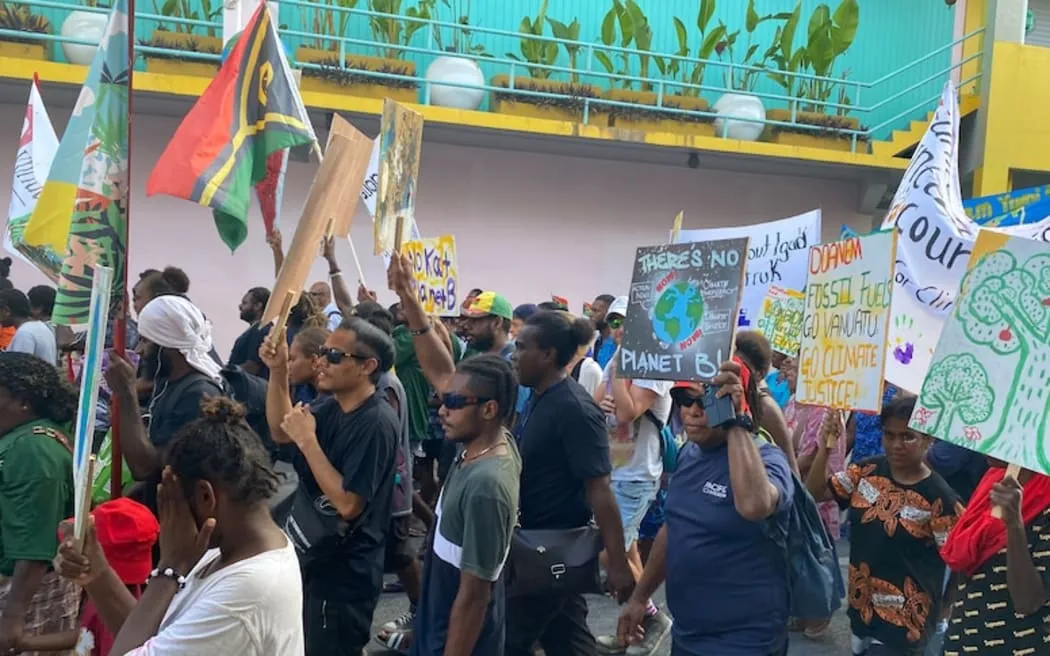Vanuatu Leads the Way in Climate Change Case at International Court of Justice
The world’s eyes are on The Hague as Vanuatu takes its case to the International Court of Justice (ICJ) regarding states’ obligations to prevent climate change. Pacific Islanders have led the campaign for the ICJ to consider this critical issue, and their efforts may finally pay off.
The ICJ Hearings: A New Benchmark for International Law
Hearings began on Monday morning at The Hague, with Vanuatu leading the charge. The case seeks an advisory opinion from the Court on the legal responsibilities of countries in relation to climate change. Nearly 100 countries, including Vanuatu, are making oral submissions, which will last for two weeks.
Vanuatu’s special envoy to climate change, Ralph Regenvanu, outlined their argument: “This conduct – to do emissions that cause harm to the climate system, which harms other countries – is in fact a breach of international law, is unlawful, and the countries who do that should face legal consequences.” He emphasized that they are not just discussing countries breaking climate law but rather seeking a line in the sand. Regenvanu’s goal is for the ICJ to establish a new benchmark in international law stating that cumulative global greenhouse gas emissions cause climate change, making it a breach of international law.
A Call for Accountability
Regenvanu expressed his frustration with the lack of consequences for countries failing to meet their climate goals. He noted that COP29 in Baku was particularly frustrating, with high-emitting states continuing fossil fuel production and the development of new oil and coal fields. The ICJ’s ruling, although non-binding, will provide a clear message: “International law says you cannot do this.” This could be a turning point for climate negotiations, such as those under the UN Framework Convention on Climate Change (UNFCCC).
A Pacific Perspective
Another Pacific climate change activist, Coral Pasisi from the Pacific Community (SPC), shared her thoughts on the matter. She believes that a strong legal opinion from the ICJ might be able to hold polluting countries accountable for failing to reach their targets.
The Court’s Decision: Two Critical Questions
The court will decide on two key questions:
* What are the obligations of states under international law to protect the climate and environment from greenhouse gas emissions?
* And, what are the legal consequences for states that have caused significant harm to the climate and environment?
As the world waits with bated breath for the ICJ’s decision, it remains to be seen whether this case will mark a new era in international cooperation on climate change.

0 Comments